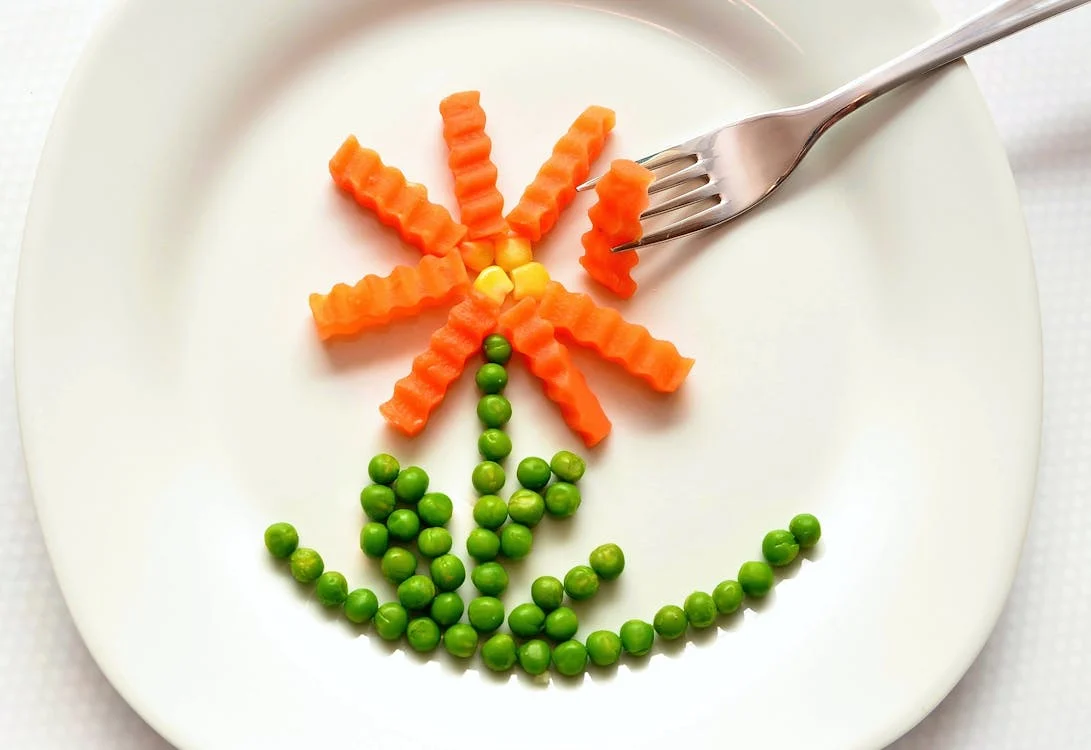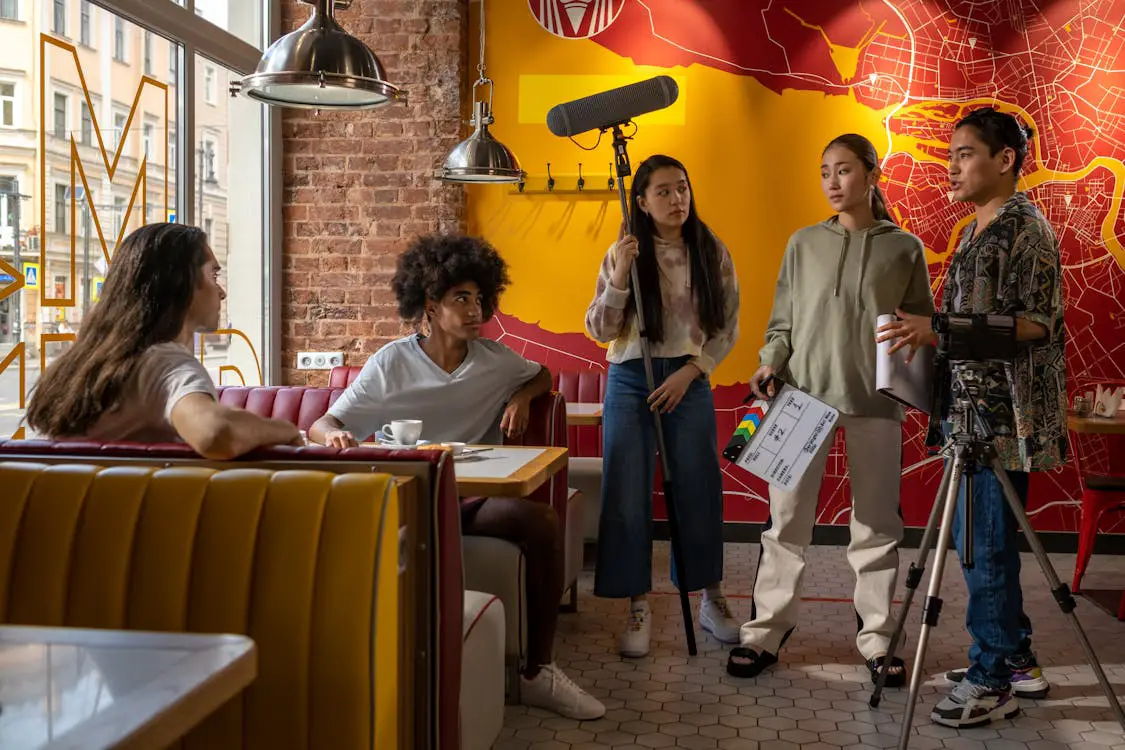Why Do Actors Say “Peas and Carrots?”
Common phrases actors use to simulate conversation
(By Carmichael Phillips)

(Photo: Nataliya Vaitkevich | Pexels)
RELATED TOPICS:
Why Do Actors Say, “Break a Leg?”
Why Do Actors Say, “Thank you, Places.”
Why Do Actors Say, “And, scene!”
If you’ve ever been on a film set or in a theater rehearsal, you may have heard actors in the background muttering, “peas and carrots.” At first glance, this might seem odd or out of place, but it’s actually a common practice in acting. This phrase is used as part of a technique to create realistic background chatter or “walla” in scenes where characters are supposed to be engaged in conversation but aren’t the main focus of the action.
So why the phrase: “peas and carrots”?
Creating Natural Background Noise
 (Photo: Mart Production | Pexels)
(Photo: Mart Production | Pexels)
In a film or play, there are often scenes with large groups of people or a bustling environment where background characters are supposed to be talking. However, this dialogue isn’t scripted in detail because the focus remains on the main actors. To avoid distracting the audience or conflicting with the primary dialogue, actors use filler words that mimic conversation without being intelligible. “Peas and carrots” is a go-to phrase because it has a natural rhythm that resembles casual speech.
Why “Peas and Carrots?”
The exact origin of “peas and carrots” is unclear, but the phrase is thought to have been chosen because of the way it sounds when spoken repeatedly. The soft consonants and vowel sounds blend well together, creating the illusion of continuous speech. When actors say it over and over, it forms a kind of rhythmic murmur that sounds like indistinct chatter from a distance, especially when used by groups of background actors.
Moreover, “peas and carrots” are common, ordinary words that don’t attract attention. Since they aren’t highly emotional or dramatic, they don’t pull focus from the main action, allowing the central characters and plot to remain the audience’s priority.
Other Common Phrases and Techniques
 (Photo: Pixabay | Pexels)
(Photo: Pixabay | Pexels)
“Peas and carrots” isn’t the only phrase used for background chatter. Some actors might also say “rhubarb” or “watermelon” for similar reasons. These phrases work because they create the desired sound effect without forming recognizable dialogue. They’re essentially nonsense phrases that allow actors to appear as though they’re engaged in conversation while remaining unobtrusive.
Another technique used in film and theater is “walla,” a term that refers to the sound of indistinct background conversation. In some instances, entire groups of extras or background actors might be instructed to murmur phrases like “peas and carrots” to create the natural hum of a crowd. This is later blended into the overall soundscape of the scene during post-production in film.
Why Not Just Improvise Dialogue?

You might wonder why actors don’t just improvise their own lines in these background scenes. In some cases, they do—especially in films that encourage a lot of improvisation. However, there are reasons why filler phrases like “peas and carrots” are often preferred:
Consistency: Using the same neutral words prevents actors from accidentally saying something inappropriate, confusing, or out of context.
Sound Clarity: If too many people improvise different conversations, the resulting sound can become too chaotic, making it difficult for the audience to focus on the main dialogue.
Simplified Direction: Directors often want extras and background actors to concentrate on physical movement and placement, so using a stock phrase like “peas and carrots” keeps things simple while still adding a layer of realism.
When It’s Used
“Peas and carrots” is mostly used in group scenes, such as in a busy restaurant, a classroom, or a bustling office where there are multiple characters in the background. You’ll rarely hear it from a main character in a scene, but if you pay close attention in films or plays, you may notice how the background chatter adds to the realism without overwhelming the action.



